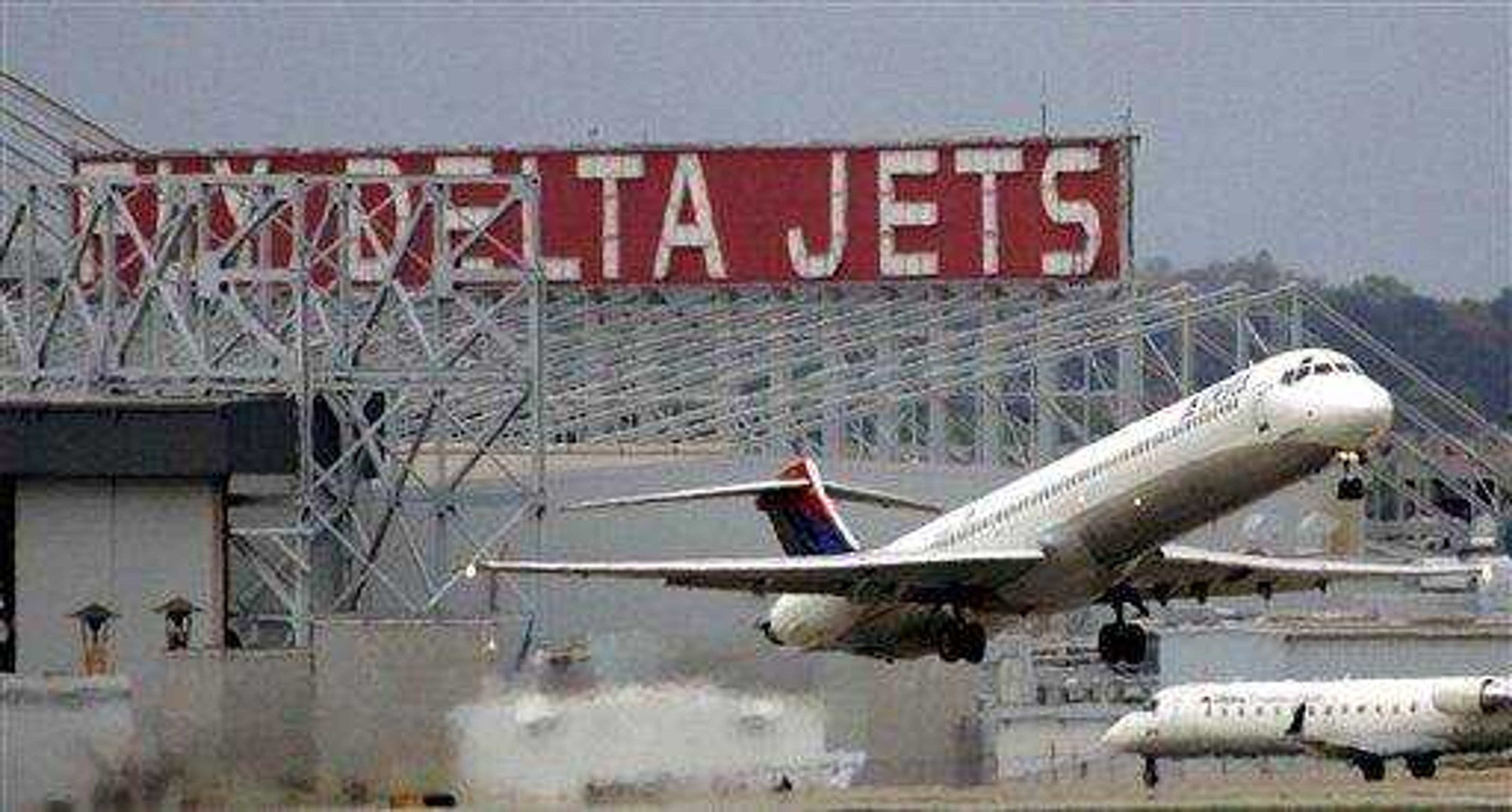ATLANTA -- Delta Air Lines Inc., the world's biggest airline operator, on Wednesday reported a double-digit drop in unit revenue during the second quarter as demand for air travel continued to slump, but it narrowed its net loss to $257 million from a year earlier when it accounted for big one-time items.
The news followed hefty losses reported by Continental Airlines Inc. and American Airlines parent AMR Corp., while United Airlines parent UAL Corp. posted a small profit. Discount carriers Southwest Airlines Co. and the parent of AirTran Airways also had profits.
The results reported by Atlanta-based Delta for the April-June quarter were equivalent to 31 cents a share, compared to a loss of $1.04 billion, or $2.64 a share, a year earlier. In the second quarter of 2008, Delta recorded special charges totaling $1.2 billion, including a $1.1 billion non-cash charge, net of a $119 million tax benefit, related to the decline in the carrier's market value due to record fuel prices. The price of fuel has fallen substantially over the last year.
Excluding merger-related expenses, Delta would have lost $199 million, or 24 cents a share, in the latest quarter. The airline said it would have posted a profit of $191 million if it were to also exclude $390 million in fuel hedge losses.
Revenue in the quarter rose 27 percent to $7 billion, compared to $5.5 billion a year earlier before Delta completed its acquisition of Northwest Airlines. On a combined basis, total operating revenue declined 23 percent and total unit revenue declined 17 percent.
Analysts surveyed by Thomson Reuters, who generally exclude one-time items from their estimates, expected a loss of 29 cents a share on revenue of $6.94 billion.
In the quarter, consolidated unit costs, excluding fuel and special items, were up 2 percent as system capacity declined 7 percent.
"The industry faces substantial challenges from unprecedented revenue declines and volatile fuel prices, but Delta is the best positioned network carrier to weather these economic conditions," Chief Executive Richard Anderson said in a statement.
As of June 30, Delta had $5.4 billion in unrestricted liquidity, including $4.9 billion in cash, cash equivalents and short-term investments and $500 million available under an undrawn line of credit.
For the first half of the year, Delta lost $1.05 billion, or $1.27 a share, compared to a loss of $7.43 billion, or $18.79 a share, a year earlier. Six-month revenue rose to $13.68 billion, compared to $10.27 billion a year earlier. Delta acquired Northwest in October, during the fourth quarter of last year.
Delta is cutting more capacity to weather the downturn.
Earlier in the year, analysts expected Delta to be profitable in the second quarter. But the decline in revenue across the industry has persisted. Wall Street still expects Delta to be profitable, on an adjusted basis, in the third quarter and fourth quarters.
Airlines have had to significantly discount seats and offer deals for business travelers to lure passengers during the summer, which is usually a busy time for carriers. Add-on fees also have been a key revenue source for the airlines.
As the industry heads into its slow period in the fall, some airlines may be forced to make deeper cuts. Delta already plans to cut international capacity by 15 percent starting in September. Delta has also said it will reduce system capacity by 10 percent this year compared to 2008.
There has been concern that one or two major carriers might not make it past early next year if the economy doesn't improve or weakens further, though analysts generally consider Delta healthier than most because of its global network and the amount of cash it has on hand.
Delta is in the process of shedding pilot jobs after offering a retirement incentive program. The union says 215 pilots accepted the offer. Delta, which has cut other jobs through voluntary severance programs, says it continues to monitor its staffing levels as soft demand for air travel continues. Executives have said they are working to avoid involuntary furloughs.
Delta subsidiaries include Northwest Airlines, Comair, Compass and Mesaba. It has hubs in Atlanta, Cincinnati, Detroit, Memphis, Minneapolis-St. Paul, New York-JFK, Salt Lake City, Amsterdam and Tokyo-Narita. The company has about 80,000 employees
Connect with the Southeast Missourian Newsroom:
For corrections to this story or other insights for the editor, click here. To submit a letter to the editor, click here. To learn about the Southeast Missourian’s AI Policy, click here.







